When Sheffield went to Wembley
30 years on from the iconic FA Cup semi-final: was this the pinnacle for football in the Steel City?
By Kelan Sarson, Oliver Nunn, Dan Hunt, George Litchfield, Tobias Gavelle
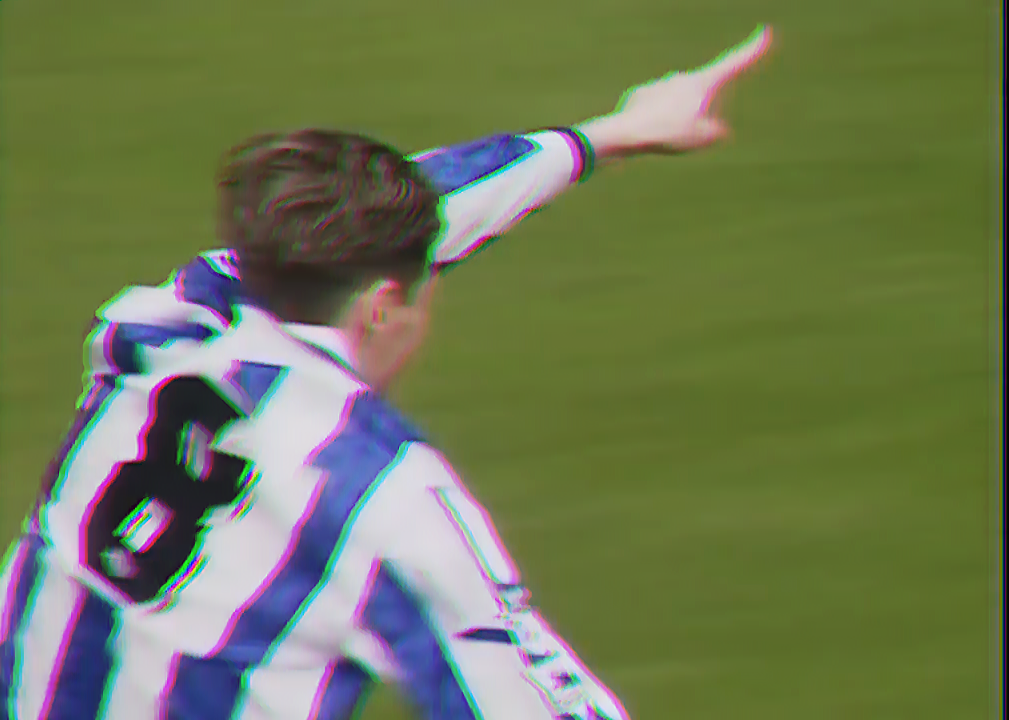
“There was no chance they were going to beat us at Wembley and we believed that." Carlton Palmer said, reflecting on one of the biggest games of his career.
In April, it will be 30 years since Palmer donned the blue and white stripes of Sheffield Wednesday and stepped on to the turf at the old Wembley stadium to face bitter city rivals Sheffield United in the FA Cup Semi-Final.
For Palmer the game was one of many highlights in a career which saw him pick up 18 England caps and over 200 appearances for Wednesday.
"We were a very good side, and we believed in our ability." Palmer added. "It was a very special team, it was very special people."
Barely two minutes into the game, Wednesday won a free kick just outside the Blades box. Chris Waddle stood a few yards away from the still ball, he took a breath and charged at it, striking with his left foot.
Sheffield United fan Ben Green watched Waddle line up the free kick from the stands. Aged 14, he'd travelled down to London on the train with his Dad and brother.
He was so excited for the match he couldn't even begin to think about homework, which had led to a big telling off the day before.
“It was about 30 or 35 yards out so we weren't too concerned. We were thinking Chris Waddle is never going to score from there.” Mr Green remembered.
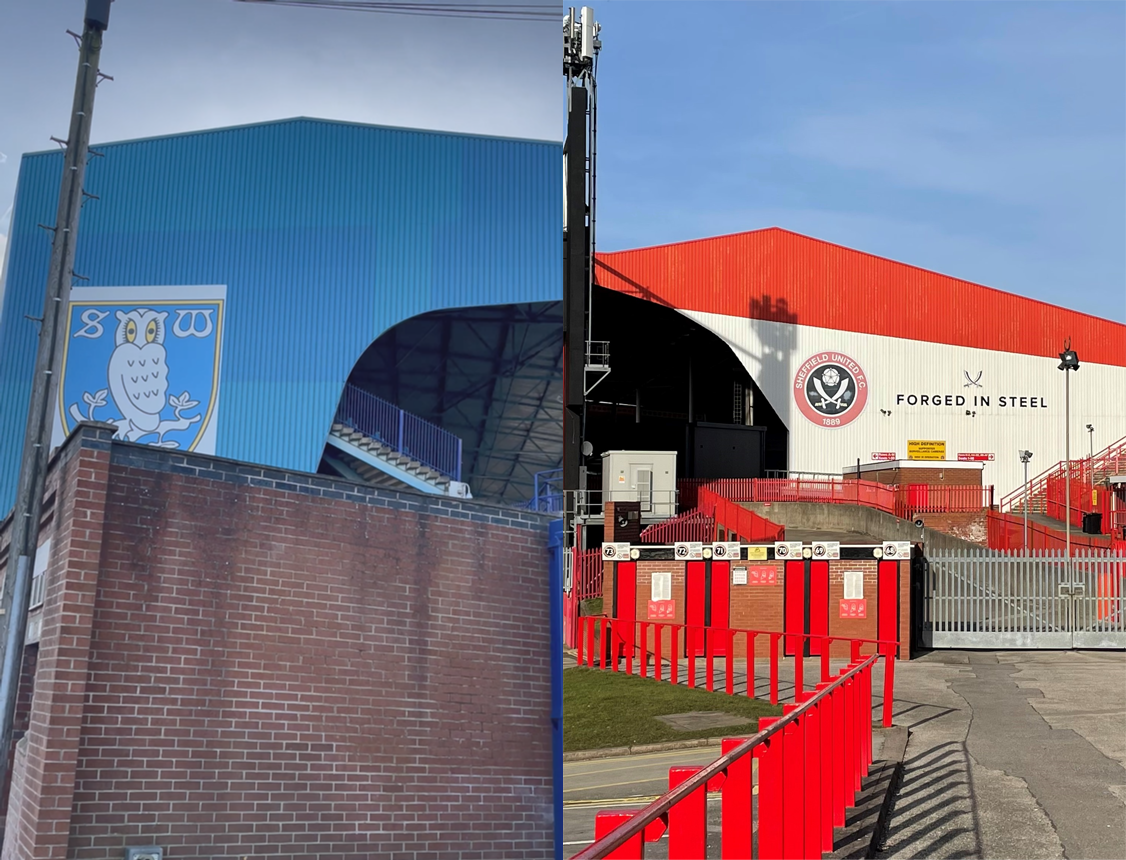


"We were thinking Chris Waddle is never going to score from there"
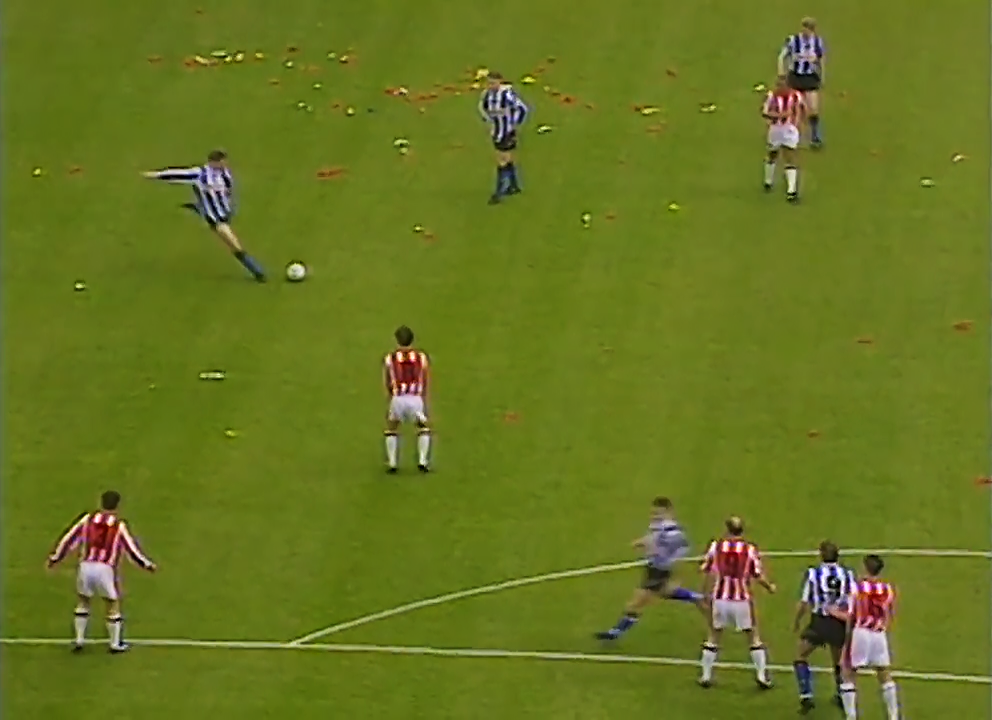
The ball sailed over the jumping wall and ripped into the top corner of the net.
Lee Brown, a Sheffield Wednesday supporter, watched the net bulge from the opposite end of the stadium.
He'd made the trip down the M1 on a supporters coach with his friends, driving past buses, cars and bridges draped in the colours of both sides of the City.
Mr Brown said: “I’d just got to my seat and I’d not even sat down, everyone was stood up for the free kick. What a great start. What a great goal.
“It’s one of my favourite Wednesday goals ever."
Palmer described Waddle as one of the best players he played with or against.
As Waddle ran away pointing to the stands, half of the 75,364 fans inside Wembley stadium erupted – half of Sheffield erupted.
“It was bodies everywhere, limbs everywhere, people up in the air, people on the floor” Mr Brown added.
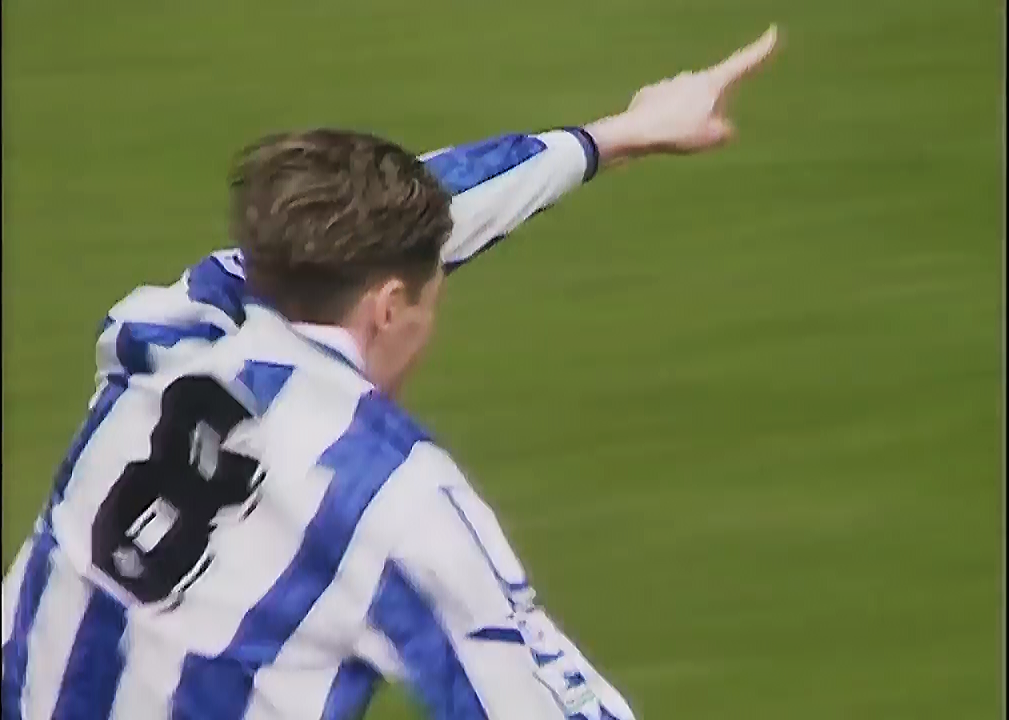
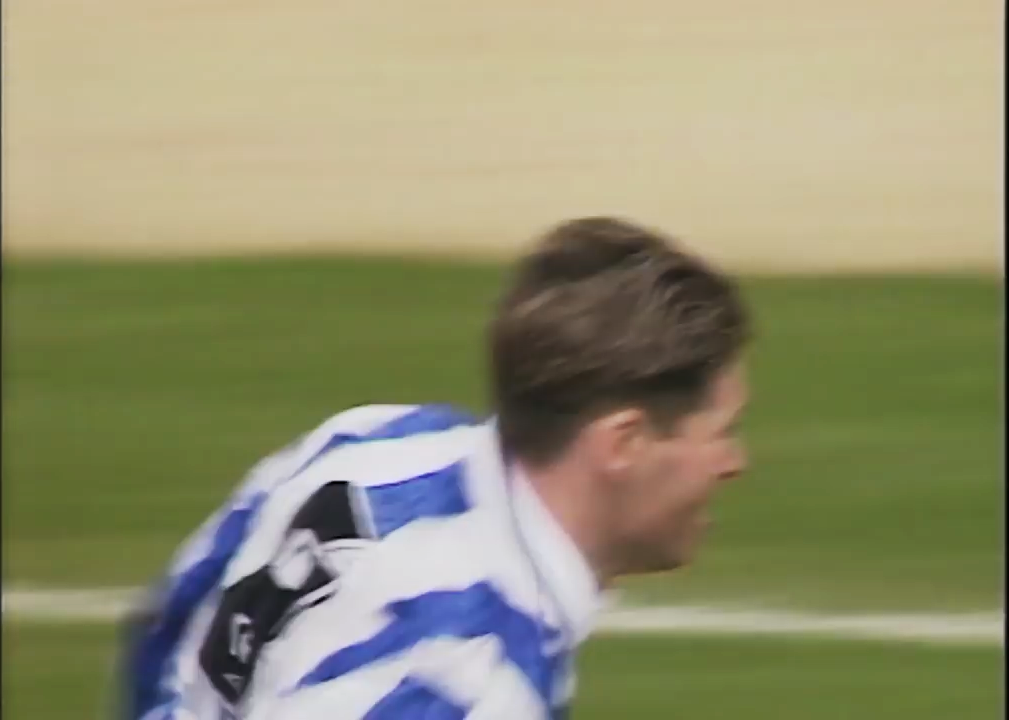
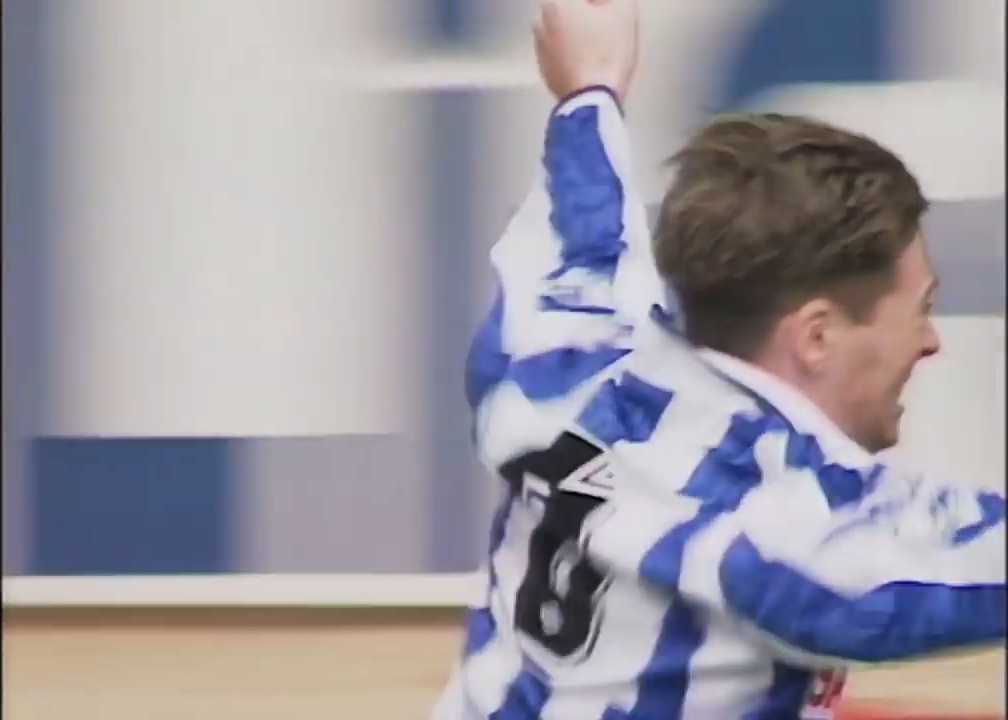
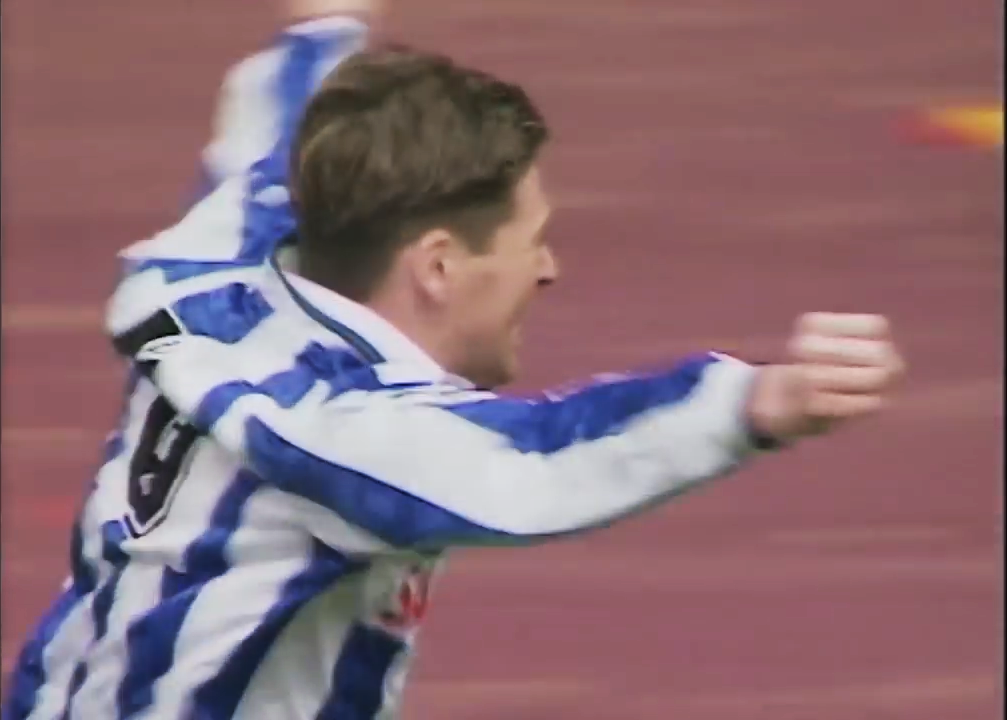
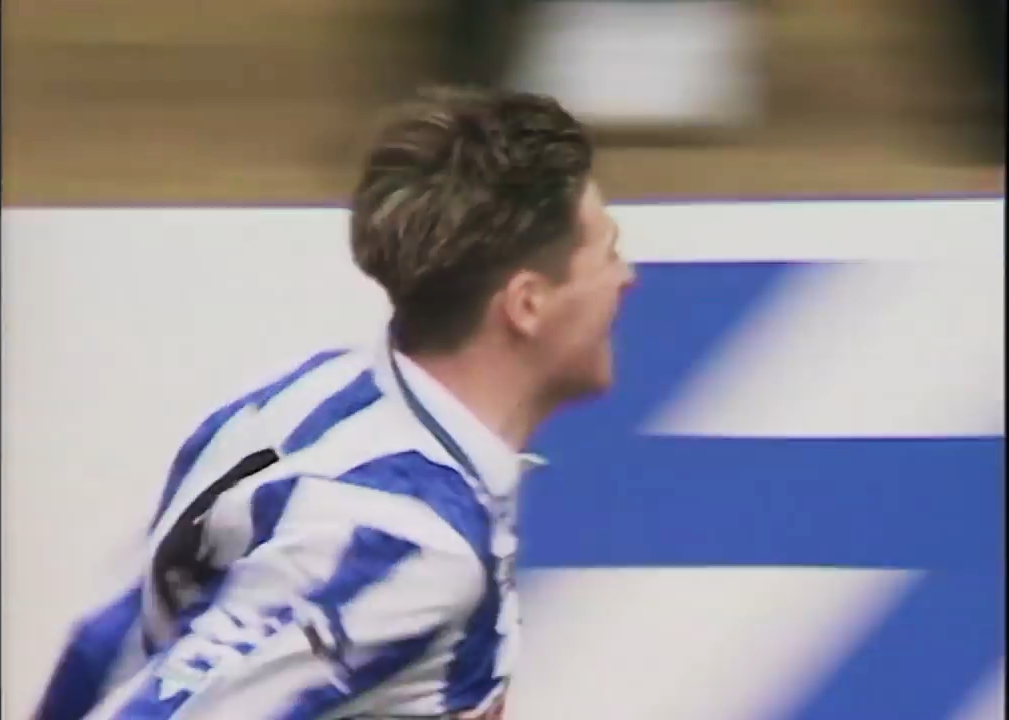
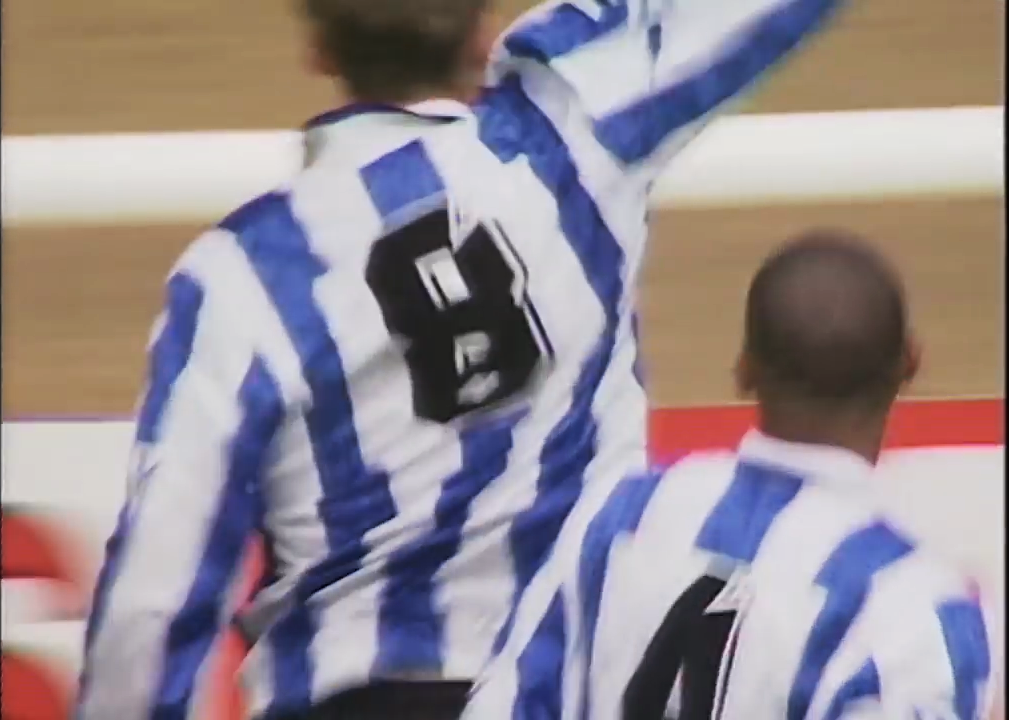
"It was a massive game, a Steel City derby. It's a tremendous occasion"
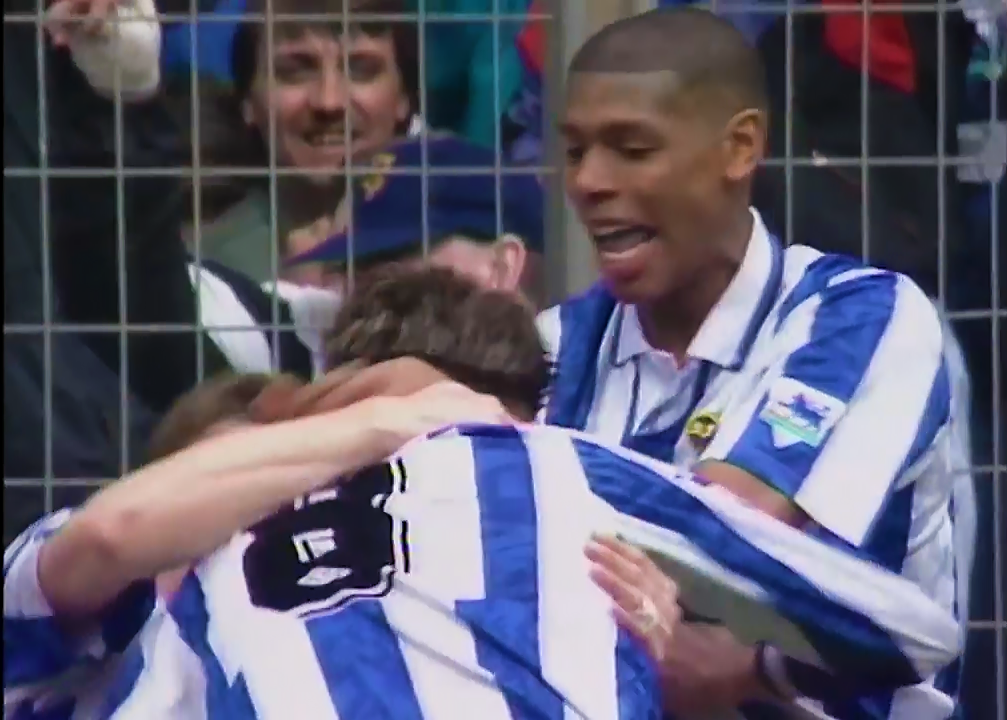
The Blades equalised late in the first half and the game remained even into extra-time, before Mark Bright scored for the Owls, sending the blue half of Sheffield through to the FA Cup Final.
Palmer claimed that the game was always in his side's favour: "The pitch was too big and we had too good players to move the ball around. The game, although the score line was close, it wasn't a close game.”
“Obviously it was a massive game, a Steel City derby. It's a tremendous occasion. It was a great day seeing the two fans. There's much talked about the rivalry, but it was a great day seeing the fans red and white and blue and white.” Palmer added.
Carlton Palmer reflects on the game
Carlton Palmer reflects on the game
"Ever since then, it’s been the hardest team in the country to support"
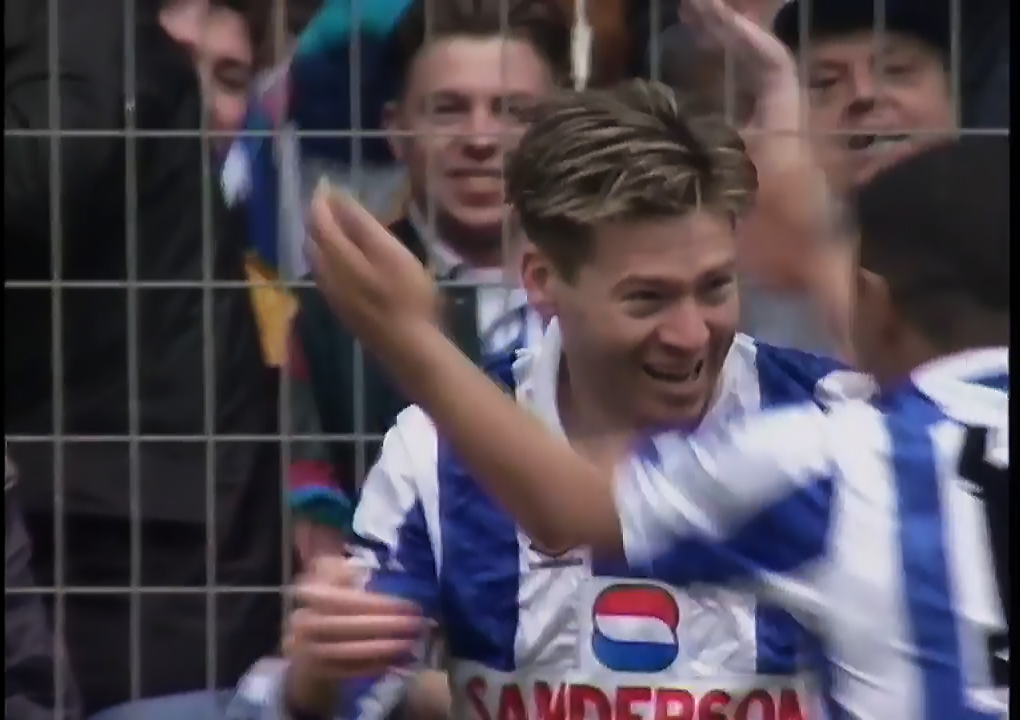
Despite being on the losing side, Blades fan Ben Green has positive memories of the day.
Mr Green said: “I think in reflection it was a great occasion for the City of Sheffield, and for both clubs of Sheffield football. But looking back, it does feel like a bit of a high watermark for Sheffield football.”
The match did indeed mark a post-war footballing peak for Sheffield. The previous season Wednesday finished third in the first division, above Arsenal and Liverpool. Sheffield United finished ninth, above Tottenham and Chelsea.
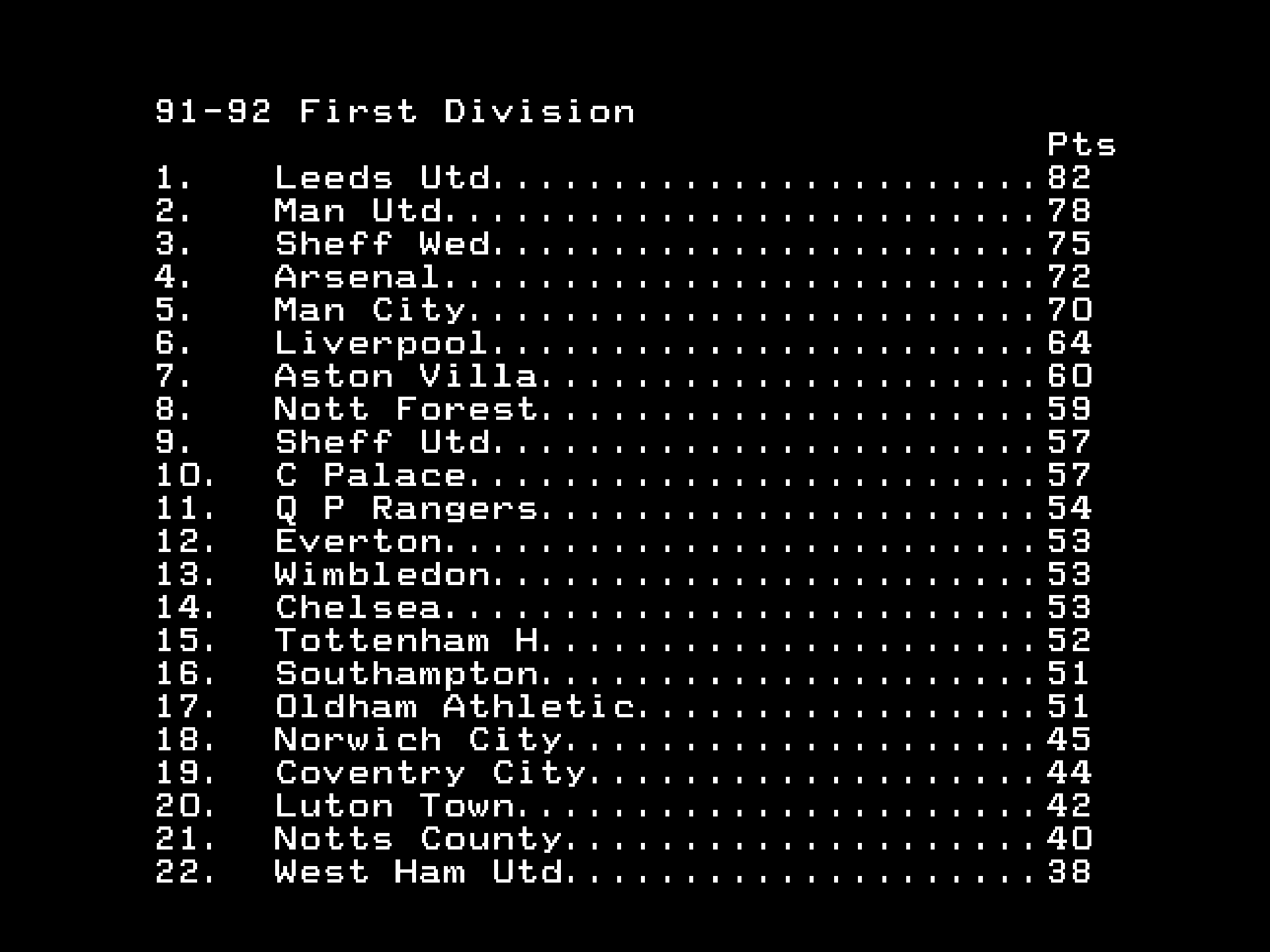
Since the semi-final however, the footballing fortunes of a city which boasts the world's first official club, match, trophy and ground have seen far more downs than ups.
In the past 30 years the city’s two main clubs have spent a combined 11 seasons in English football's top flight out of a possible 60 and since the turn of the century, only three.
Mr Brown had been following Sheffield Wednesday for a decade and was 18 at the time of the semi-final.
He said: “The first ten years of being a Wednesdayite we won a cup, we got into Europe, we went to Wembley four times, three cup finals, we finished third in the Premier League. I thought it was easy being a Wednesdayite.
“Ever since then, it’s been the hardest team in the country to support, I'm sure.”
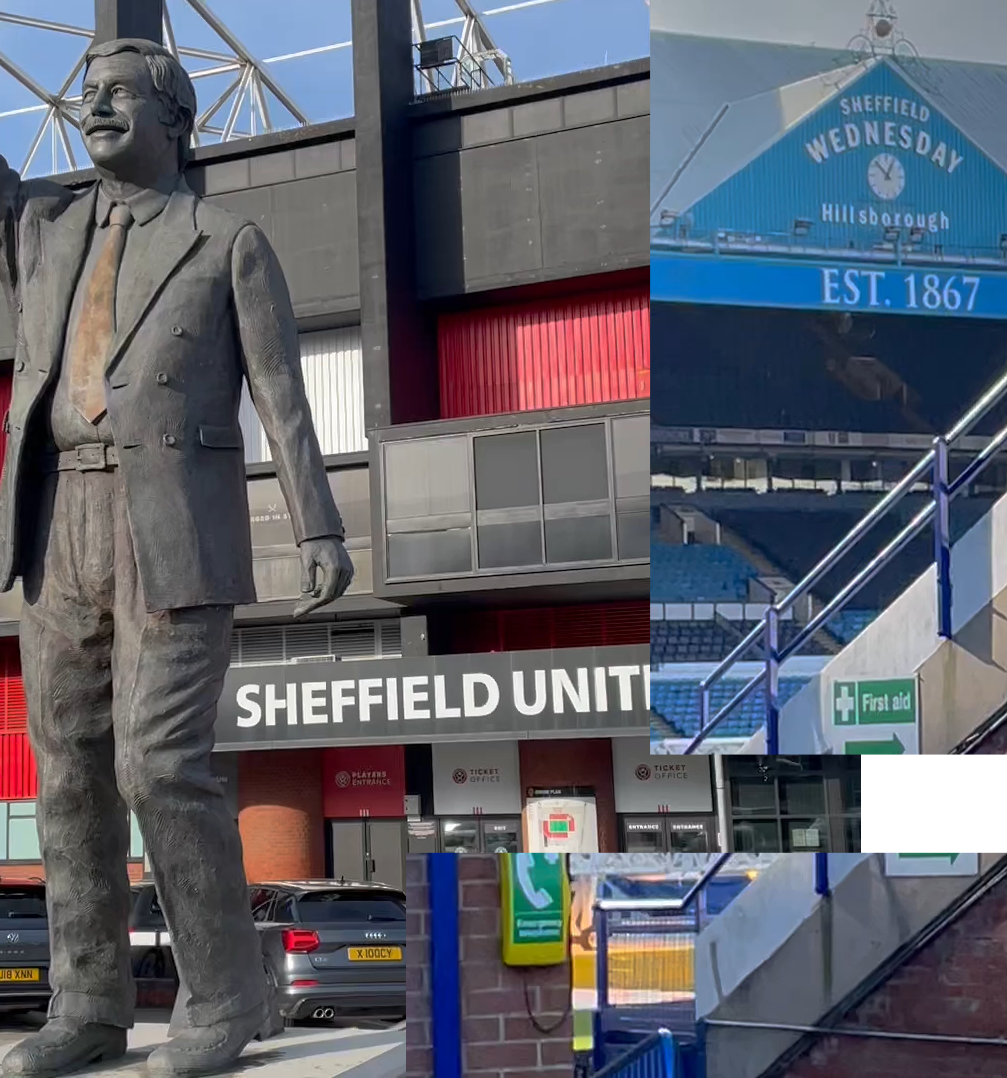
Both clubs have suffered from bad management, terrible ownership, lawsuits, fines and relegations.
Wednesday were relegated from the Premier League in 2000 with massive debts and are yet to return.
Spells in the third division left the club facing a litany of tax charges which threatened the clubs existence.
After returning to the Championship, Wednesday almost achieved promotion back to the top flight under new owner Dejphon Chansiri. However, after falling short in the play-off final, further financial mismanagement led to a points deduction and another relegation.
The Blades have enjoyed some success but have still endured more heartbreak than triumph.
After relegation from the top flight in 1994 the club made a return for a solitary season in 2006. The short stay in the Premier League left the club with spiralling debts and a six year spell in the third tier.
Chris Wilder led the Blades back for another stint in the top division for two seasons before suffering another relegation.
The clubs on both sides of the city have had to deal with a lack of modern football's most important commodity: Money.
Since 1993 Wednesday have spent a combined 123 million euros on transfers. Sheffield United have spent a total of 229 million. Compared with Premier League big spenders Man City, the money seems insignificant.
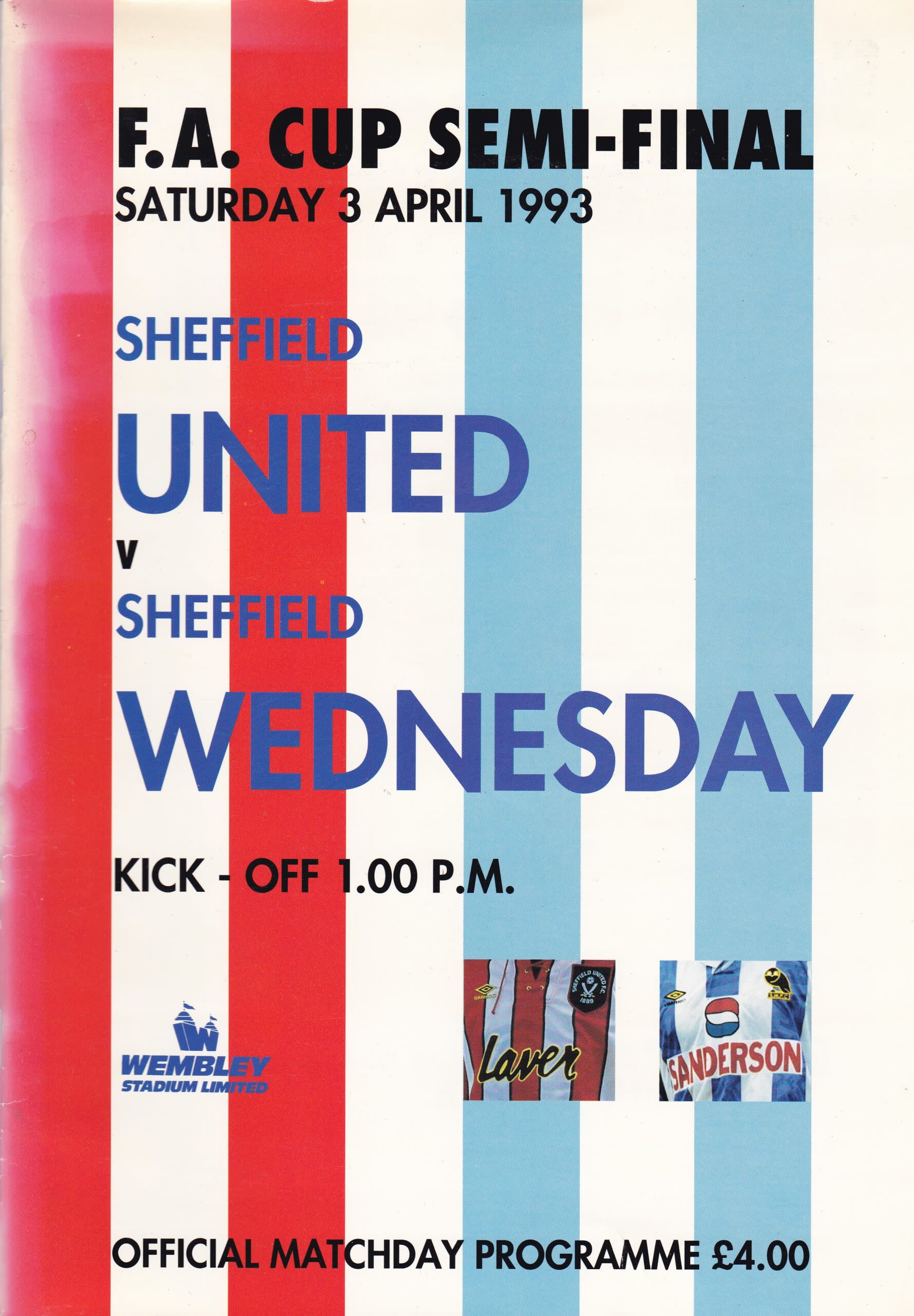
For now though, a feeling of optimism permeates throughout Sheffield, Wednesday sit at the top of League 1 and United are second in the Championship.
Palmer expects to see both clubs succeed this season and make strides toward the levels they achieved in his playing days.
“It's exciting times for both clubs in Sheffield, because I think both clubs will get promoted this season and United will go back to the Premier League and I think Wednesday will be in the Championship.” Palmer said.
Whether the clubs can reach the heights of the early 1990s remains to be seen but the prospect of a Steel City derby in the Premier League is still a tantalising prospect for both sets of fans.
“It would be good to have both clubs in the Premier League, I think, obviously, better if we're above them each season, and we're there beating them.” said Blades fan Mr Green.
In the 30 years since the FA Cup Semi-Final, Sheffield has been starved of footballing success. All that remains is the fading memory of a famous match and the hope that one day 80,000 fans will descend down the M1 to Wembley once again.
